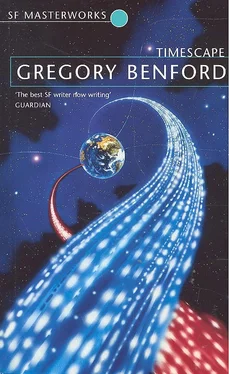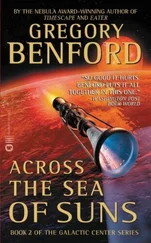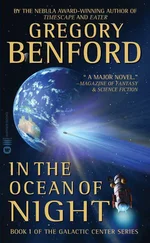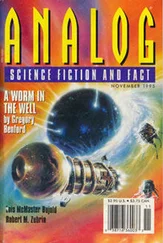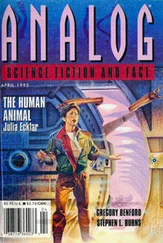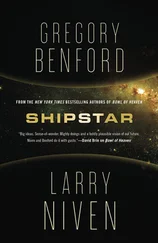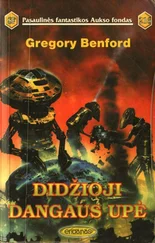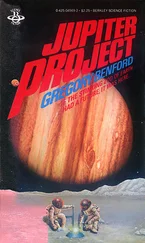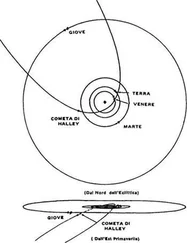Gordon surged up, lurched to his feet. Penny watched him. Her lips parted in surprise at his stony expression. He struggled for the words, for something to fill the ground between knowledge and suspicion, something just right, and finally mumbled, “Don’t, don’t mind me.”
“Hey, sport, I—”
“Goy games.” Gordon waved a hand in dismissal, face hot. It had come out more bitter than he planned.
“Gordon, come on, really—” Penny began, but he turned away and broke into a trot. The rhythm picked him up instantly. He heard her voice, raised above the crunch of breakers, but it was thin and fading as she called to him. Okay , he thought, no Great Gatsby finish, but it got me out of that, that—
Not ending the sentence, not wanting to think about any of it any more, he ran toward the distant carved hills.
CHAPTER TWENTY SEVEN

AUGUST 6, 1963
“I’M THINKING OF GOING INTO INDUSTRY,” HE SAID to Penny one evening over supper. They had shared their small talk already, in what had become a thin ritual. Gordon refused to discuss the meeting on the beach, refused to have Cliff over for a drink, and felt his withdrawal would, ultimately, settle the matter. Only dimly did it occur to him that the refusals were the cause of the curiously stale conversations they now had together. “What’s that mean?”
“Work in a company research lab. GE, Bell Labs—” He launched into an advertisement for the virtues of working where results counted, where ideas evolved swiftly into hardware. He did not, in fact, believe the industrial labs were superior to university groups, but they did have an aura. Things got done faster there. Helpers and technicians abounded. Salaries were higher. Then too, he enjoyed the unavoidable smugness of the scientist, who knew he could always have a life beyond academe. Not merely a job , but a pursuit . Genuine research, and for decent pay, too. Maybe something beyond the laboratory, as well—look at Herb York with his consulting on “defense posture” and the cloudy theories of disarmament. The government could use some clear scientific thinking there, he argued.
“Gordon, this is just plain old bullshit.”
“Huh?” It stalled him for a moment.
“You don’t want to go work for a company.”
“I’m thinking very seriously—”
“You want to be a professor. Do research. Have students. Give lectures. You lap it up.”
“I do?”
“Of course you do. When everything’s going okay you get up humming in the morning and you’re humming when you come home at night.”
“You overestimate the pleasures of the job.”
“I’m not estimating at all. I see what professoring does to you”
“Uh.” His momentum blunted, he ruefully admitted to himself that she knew him pretty well.
“So instead of talking up some temporary escape hatch like industry, you ought to be doing something.”
“Like what?”
“Something different . Move your x’s and y’s and z’s around. Try—”
“Another approach,” he finished for her.
“Exactly. Thinking about problems from a different angle is—” She broke off, hesitated, then plunged ahead. “Gordon, I could tell what was going on there with Cliff. I could reassure you and do a whole routine, but I’m not sure any more that you’d believe me.”
“Uh.”
“Remember this,” she said firmly. “You don’t own me, Gordon. We’re not even married, for Chrissake.”
“Is that what’s bothering you?”
“Bothering me? God, it’s you that’s—”
“—’cause if it is, maybe we ought to talk about that and see if—”
“Gordon, wait. When we started out, moved in together, we agreed we were going to try it out, that’s all.”
“Sure. Sure.” He nodded vigorously, his food forgotten. “But I’m willing, if it’s making you play games like this thing with Cliff—and that was really childish, Penny, arranging that meeting, just childish—I’m willing to talk about it, you know, ah, getting—”
Penny held out her hand, palm toward him. “No. Wait. Two points, Gordon.” She ticked them off. “One, I didn’t arrange any meeting. Maybe Cliff was looking for us, but I didn’t know about it. Hell, I didn’t even know he was around here. Two—Gordon, do you think our getting married will solve anything?”
“Well, I feel that—”
“Because I don’t want to, Gordon. I don’t want to marry you at all.”
• • •
He came up out of the muggy press of late summer in the subway and emerged into the only slightly less compacted heat of 116th Street. This entrance and exit were relatively new. He dimly remembered an old cast-iron kiosk which, until the early ‘50s, ushered students into the rumbling depths. It stood between two swift lanes of traffic, providing a neat Darwinian selection pressure against undue mental concentration. Here, students with their minds stuffed chock full of Einstein and Mendel and Hawthorne often had their trajectories abruptly altered by Hudsons and DeSotos and Fords.
Gordon walked along 116th Street, glancing at his watch. He had refused to give a seminar on this, his first return to his Alma Mater since receiving his doctorate; still, he did not want to be late for his appointment with Claudia Zinnes. She was a kindly woman who had barely escaped Warsaw as the Nazis were entering it, but he remembered her impatience with late students. He hurried by South Field. To his left students clustered on the shallow steps of Low Library. Gordon headed for the physics building, perspiring from the effort of carrying his big brown suitcase. Among a knot of students he thought he saw a familiar face.
“David! Hey, David!” he called. But the man turned away quickly and walked in the opposite direction. Gordon shrugged. Maybe Selig didn’t want to see an old classmate; he always had been an odd bird.
Come to think of it, everything here now seemed a little bit odd, like a photograph of a friend with something retouched. In the yellow summer light the buildings looked a little more scruffy, the people wan and pale, the gutters slightly deeper in trash. A block away a drunk lounged on a doorstep, drinking from something in a brown paper bag. Gordon picked up his pace and hurried inside. Maybe he had been in California too long; everything that wasn’t crisp and new struck him as used up.
Claudia Zinnes was unchanged. Behind her warm eyes lurked a glinting intelligence, distant and amused. Gordon spent the afternoon with her, describing his experiments, comparing his apparatus and techniques with her laboratory. She knew of spontaneous resonance and Saul Shriffer and the rest. She found it “interesting,” she said, the standard word that committed you to nothing. When Gordon asked her to try to duplicate the experiment with Cooper, at first she brushed aside the idea. She was busy, there were many students, thè time on the big nuclear resonance magnets was all booked up, there was no money. Gordon pointed out how similar one of her present setups was to his own; simple modifications would make it identical. She argued that she didn’t have a sample of indium antimonide good enough. He produced five good samples, little slabs of gray: here, use them any way you want. She arched an eyebrow. He found himself slipping into a persona he had forgotten—pushy yid schoolboy, hustling the teacher for a better grade. Claudia Zinnes knew these routines as well as anybody living, but gradually his pressure piqued her interest. Maybe there was something to the spontaneous resonance effect after all. Who could tell, now that the waters around it had been muddied so? She gazed at him with the warm brown eyes and said, “It’s not for that you want me to check. Not to clear up this mish-mosh,” and he nodded, yes, he hoped she would find something else. But—a warning finger—let the curves speak for themselves. He smiled and made little jokes and felt a little eerie, living in his student persona again, but somehow it all came together and worked. Claudia Zinnes slipped from “maybe” and “if” to “when” and then, seemingly without noticing the transition, she was scheduling some time on the NMR rig in September and October. She asked after some of his classmates, where they were, what sort of jobs. He saw suddenly that she had a true affection for the young people who passed through her hands and out into the world. As she left she patted his arm, brushed some lint from his damp summer jacket.
Читать дальше
